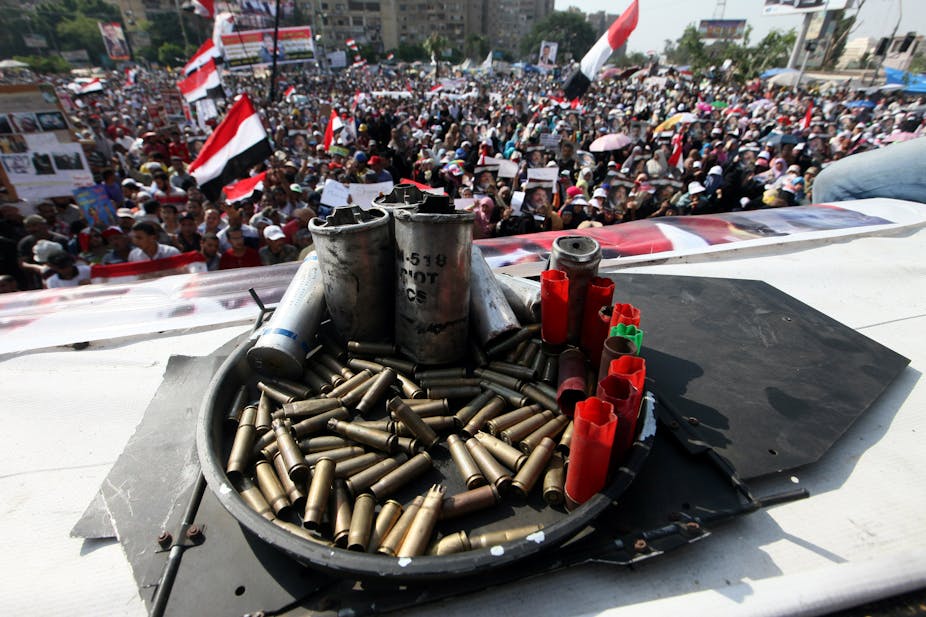In the immediate aftermath of the 9/11 attacks, the strongest external support for a forceful response from the United States came from Tony Blair, the man who now again describes the struggle against radical Islam one of the “defining challenges of our time” and calls on people to “pick a side and stick with it”.
It should be remembered that terminating the Taliban regime in Afghanistan received support from across the political spectrum in the UK, primarily as a means of crippling the al-Qaeda movement; and it was not until the early months of 2002 that a palpable sense of unease developed as the Bush administration made it clear that next on the list was the Saddam Hussein regime in Iraq.
During the latter part of that year, though, Blair was unequivocal in his support for action in Iraq and it was clear that the UK armed forces would be heavily committed. For Bush this was crucial as some key European allies, including the Germans and the French, were hugely more cautious about extending a war on terror beyond the al-Qaeda movement to embrace an “axis of evil”. By February 2003, UK public opinion was deeply divided, the opposition to invasion including one of the largest public protests ever seen in London.
For Blair, though, getting rid of Saddam Hussein had become something of a personal crusade – an appropriate term to use since part of his outlook stemmed from a strong religious sense of right and wrong. From his perspective, the defeat of the Taliban and al-Qaeda in Afghanistan and the termination of the Saddam Hussein regime were utterly necessary responses to what were essentially embodiments of evil, nothing less.
Into the quagmire
Over the following five years what had started as straightforward victories in both countries turned into devastating wars that cost close to a quarter of a million lives, injured hundreds of thousands of people and displaced at least eight million. So different was the outcome that Obama could fight the US presidential election campaign in 2008 on Iraq as a “bad war”, subsequently withdrawing US forces by 2011. Even the war in Afghanistan is now seen as unwinnable and few US troops are likely to remain there beyond the end of 2014.
Until perhaps three years ago, one outcome of the wars did at least seem to be that the al-Qaeda movement was close to being a thing of the past, but it is increasingly clear that it has simply changed from a movement into a potent idea that can take root in different environments. There are elements in many countries including Pakistan and Afghanistan, Vladimir Putin has the problem of the Caucasus Emirate, Somalia and Yemen remain centres of activity and the recent bombing of the bus station in Abuja is a stark reminder of the problem that Nigeria is facing with Boko Haram.

Even so, it is Iraq and Syria which are at the heart of Blair’s concern now. Both countries are witnessing strong Islamist movements that even control substantial territory. Furthermore, Blair clearly sees Egypt as a state that could be “lost” to the Islamist cause if strong action is not taken. It is for this reason that Blair supports the military government in Cairo, seeing as a necessary means of countering an increasingly dangerous threat to the region and beyond.
He may be fighting a lost cause, at least for now. The western failures in Afghanistan and Iraq, coupled with the chaotic outcome of regime termination in Libya and the complexities in Syria, all mean the Obama White House is hugely cautious about any further direct military involvement in the Middle East.
Personal crusade
Blair, for his part, finds this difficult if not impossible to comprehend, hence today’s speech calling the battle against Islamic extremism as the mission for our age. Looked at from Blair’s own perspective it is an eminently understandable view, and his consistency is undeniable.
His greatest problem, though, is being listened to with anything like the authority he commanded a decade ago. It is not just Afghanistan and Iraq that get in the way, but a concern across much of the political spectrum in the western world that the old ways simply have not worked.
Perhaps at the root of all of this is the suspicion that those who will welcome Blair’s speech most will be the radical Islamists right across the region and beyond. One aim of the 9/11 attacks was to incite a vigorous military response that that could be represented as a war not just against radical Islamists but against Islam itself. A “clash of civilisations” may be too strong a phrase for Blair’s speech but a clash of beliefs is not too strong a term to use, to which an Islamist response might well be – “bring it on”.

